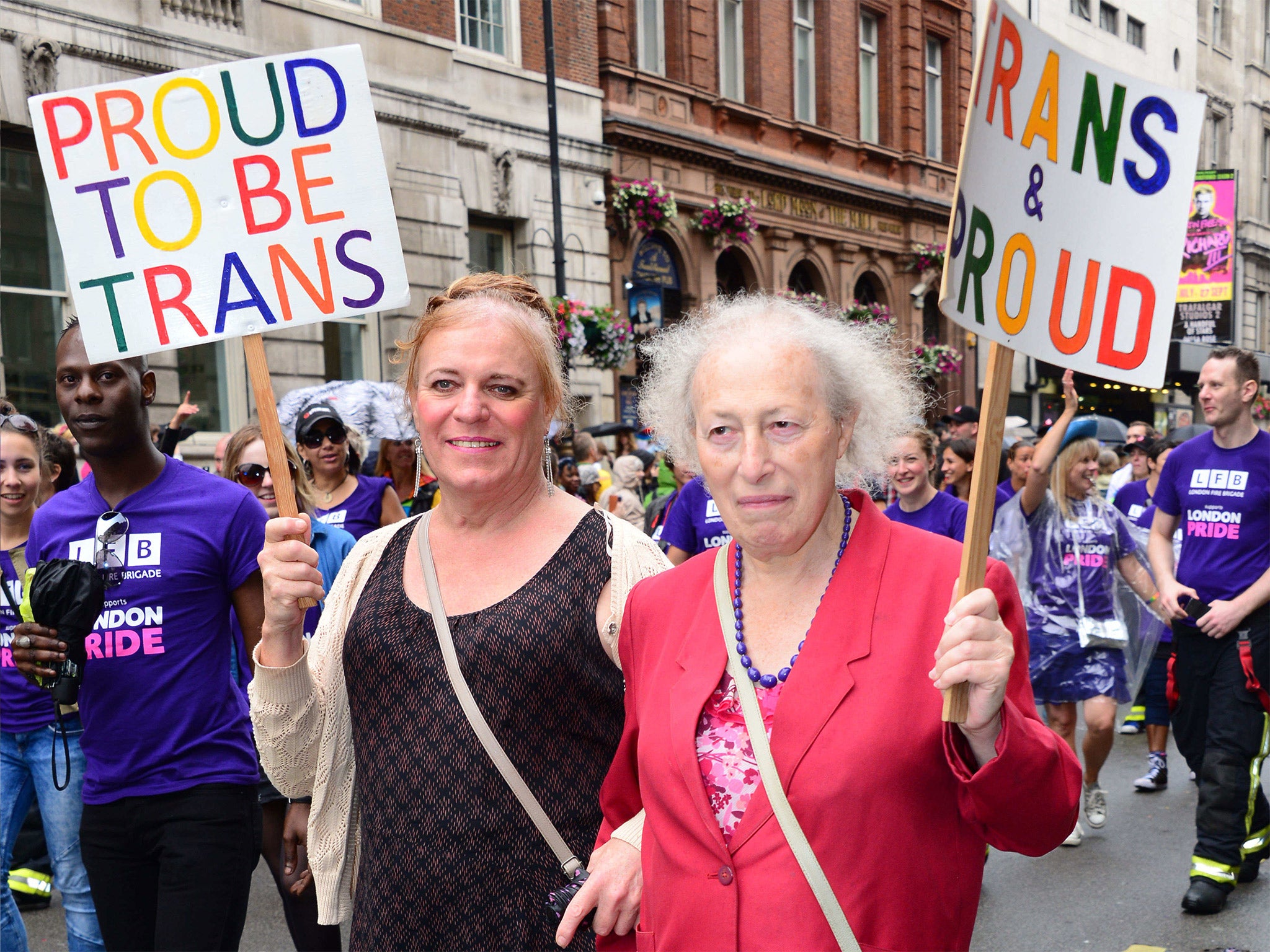Don't tell me being transgender is fashionable – I've had to deal with the reality of how others react to people like me
Nearly 90 per cent of young trans people have thought about committing suicide. More than one in four of us actually do it. It’s not because we don’t like that we’re trans; it’s because everybody else doesn’t like that we’re trans

Your support helps us to tell the story
From reproductive rights to climate change to Big Tech, The Independent is on the ground when the story is developing. Whether it's investigating the financials of Elon Musk's pro-Trump PAC or producing our latest documentary, 'The A Word', which shines a light on the American women fighting for reproductive rights, we know how important it is to parse out the facts from the messaging.
At such a critical moment in US history, we need reporters on the ground. Your donation allows us to keep sending journalists to speak to both sides of the story.
The Independent is trusted by Americans across the entire political spectrum. And unlike many other quality news outlets, we choose not to lock Americans out of our reporting and analysis with paywalls. We believe quality journalism should be available to everyone, paid for by those who can afford it.
Your support makes all the difference.I’m trans. I’m not fashionable and neither is my identity. It has never been more apparent how unfashionable it is to be me.
The past two weeks have seen attacks levied against the trans community in the press. In the United States a new President-elect is terrifying the LGBT community with his views, and "a wave of hate crime" has been unleashed by people who support them. Yet somehow, being trans is still portrayed in the media as a trendy phase. It is most certainly not a phase.
My personal story is not untouched by bigotry and anti-LGBT sentiment.
I transitioned to live as myself in 2013/14. It went well, ignoring minor harms which are taken as “part and parcel” of transitioning and living as someone who is trans. This included being called a freak, told I cannot use certain toilets, being called a man, losing friends and family and having the wrong pronouns thrown at me persistently. As I said, “part and parcel”.
I tried to be myself in my early teens. I was called a freak then, too. I was told it was disgusting and I was attacked in school and on the street. It wasn’t a time which I would refer to as “transition”; it was, instead, learning to accept myself.
But everyone knew me as somebody else and they didn’t hold back in making sure that I knew it. I couldn’t be myself and I wasn’t able to feel accepted or understood. I was largely given abuse for being gay or yelled at for being a “faggot”, because when people hate you, they tend not to care what language is used to belittle you.
I didn’t transition.
I held myself back. I told everyone it was fine and I pretended I’d be OK accepting their labels for me. I thought I could work with their opinions of my identity. My identity wasn’t for me to decide.
And it was those thoughts, those realisations, which caused me to attempt suicide. Twice. It was the realisation that I would lose all of my family and friends, that I would likely be killed, and that I could no longer be the person others had decided I was which caused me to also self-harm.
I did eventually transition. It was years after the traumatic period in my teens when I didn’t want to kill myself but I didn’t want to care what other people thought of my identity either.
It’s important to remember this stuff. For too many people like me it is a terrible choice you are forced to make: don’t transition and suffer, struggle and give up, or do transition and suffer, struggle and be killed for not giving up.
Nearly 90 per cent of young trans people have thought about committing suicide. More than one in four of us actually do it. It’s not because we don’t like that we’re trans; it’s because everybody else doesn’t like that we’re trans.
I may have tried to take my own life in the past but I am determined never to try again. The world has beaten me for being trans in the past and it will go on to beat me for it in the future but I will not have my identity beaten out of me by anyone.
My failed attempt to live as myself was a huge learning curve. The world is not safe for trans people and I fear it is growing more dangerous, not safer. There were reports the night following Donald Trump’s election that eight trans people had killed themselves. I fear that everywhere is becoming a place trans people will avoid out of fear of violence.
Trans people need support; they require our energy and our commitment to acceptance. Organisations are beginning to take notice and the cogs beginning to turn.
Big business can see the need to provide an inclusive environment and our schools have begun to realise that acceptance without exception is a responsibility held towards everyone, regardless of gender identity.
Bex Stinston is the Head of Trans Inclusion at Stonewall and Trans Day of Remembrance is November 18
Join our commenting forum
Join thought-provoking conversations, follow other Independent readers and see their replies
Comments